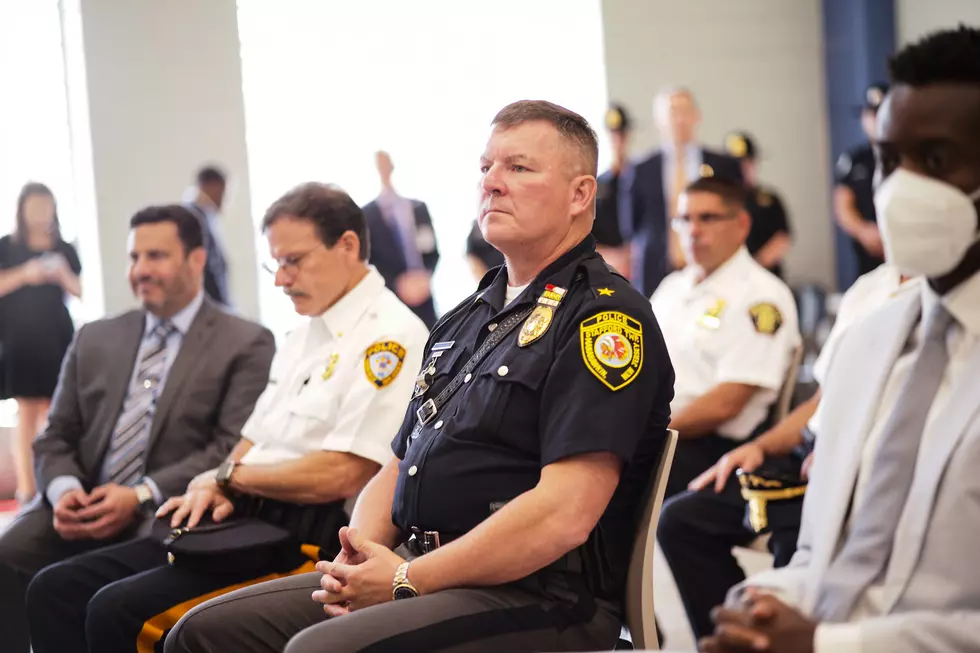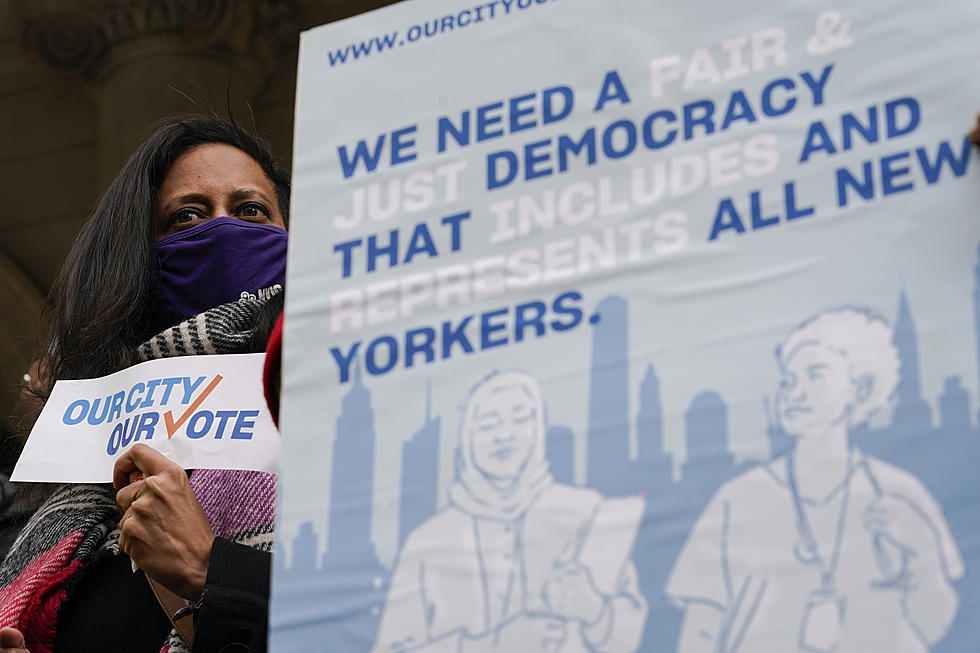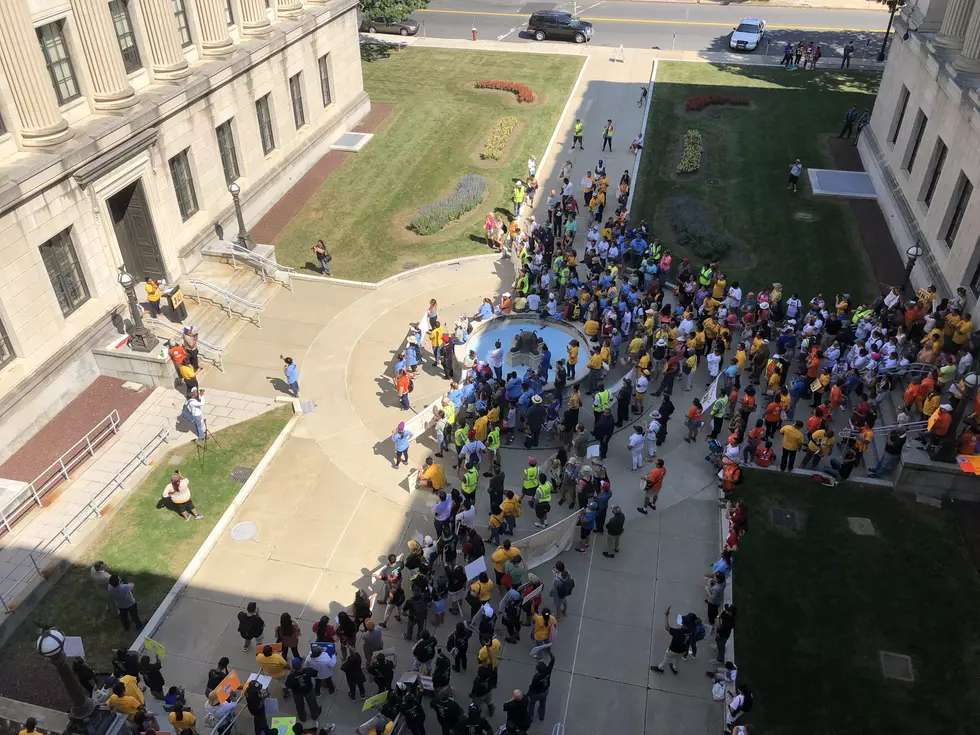What to do if you’re stopped by NJ police while driving
What would you do if you’re driving along and suddenly you see red and blue police lights in your rear view mirror?
New Jersey is ramping up efforts to keep police and drivers safe during traffic stops.
Safe Stop NJ public service messages featuring basketball great Shaquille O’Neal, former New York Giant Jessie Armstead and others encourage drivers to follow the instructions of police and show “mutual respect” during a stop.
According to Sharon Lauchaire, the director of communications for the state Attorney General’s Office, the Safe Stop campaign was designed with a two-pronged approach.
“One was a mandatory annual educational focus on our law enforcement community to recognize implicit bias, to apply de-escalation techniques and to increase cultural awareness," she said.
The second part of the campaign “is designed to spread information and reduce tension during traffic stops.”
She said one of the primary messages of Safe Stop is “know your rights, know the law, because we realize when people get pulled over, it’s a tense situation for both the officer as well as for the people that are inside the car.”
Lauchaire said keeping a few simple things in mind can make a stop safer for everybody.
“Stay in your car. Keep your hands on the steering wheel. Turn on your dome light if it’s in the evening," she said.
She said the campaign is active right now but “we will be doing sort of a re-launch of the program with some new videos and some new focuses in the next couple of months.”
Amol Sinha, the executive director of the ACLU of New Jersey, said during any interaction with the police it’s important to retain your safety and security, but also remember “everybody has Constitutional rights."
"Everybody has the right to be free from unreasonable searches and seizures. They have the right to be free from unreasonable questioning," Sinha said.
He stressed “folks should make sure they comply with police orders if they are being asked to step out of a vehicle.”
Sinha said you can ask what the reason is for stepping out of the vehicle and “if they’re being asked to search their vehicle they should say no, unless law enforcement can present a warrant."
He also said if someone feels like their rights were violated during a traffic stop, they should try to remember everything they can about what happened.
“Remember the appearances of the officers that were interacting with them, to where they were and how the interaction went down, to badge numbers of officers if they can remember it," Sinha said.
He added “once they are safe and free to do so they should write it all down, then they should feel free to call the ACLU."
At safestopnj.com. you can view Safe Stop videos, you can take the Safe Stop pledge and get a sticker you can put on the back of your vehicle that says you’re familiar with Safe Stop.
“At the same time, on that website there’s an opportunity for folks to let us know if they feel they’ve been mistreated during a traffic stop, and the Attorney General’s Office will investigate when appropriate," Lauchaire said.
The New Jersey Office of the Attorney General offers a series of suggestions on what to do if stopped by the police. They include:
1. Pull over in a safe place, as soon as possible.
2. Without delay, calmly comply with the officer’s instructions. Drivers must listen to what the Officer says and follow the Officer’s instructions.
3. When you are asked for ID and driving credentials, provide them. Drivers must provide driver’s license, registration and insurance card upon the request of the officer. Keep your license, insurance card and registration in a place you can easily access. Tell the officer that you are going to reach for these documents.
4. Once you provide the necessary identification and information, you have the right to remain silent. Drivers and passengers do not have to answer any additional questions once proper documentation has been provided to the officer.
5. Keep your hands visible, preferably on the steering wheel. When the officer can see your hands, it has a calming effect and they do not feel you are trying to harm them. Removing your hands or any sudden movement will have a negative impact on the situation.
6. When the officer instructs you to step out of the vehicle, you should cooperate. Officers may ask drivers to exit the vehicle for any reason. They may ask passengers to get out of the vehicle in certain circumstances. If drivers or passengers do not follow instructions to exit, police may use reasonable force to remove them.
7. The street is not the place for a dispute; you can file a complaint later. If you have an issue with the stop or the officer’s behavior, you always have the right to file a complaint at a later date. Following an officer’s instructions at the scene does not waive your right to later challenge the stop, the arrest, or any of the officer’s instructions.
8. Take other steps to make the traffic stop as safe as possible, including: Turn down your music. If you are stopped at night, turn on your dome and/or interior lights. This will increase the visibility inside your vehicle so the Officer will be less concerned about what he or she can’t see. Roll down your driver’s side window. Roll down any other windows if those windows are tinted. This also will increase the officer’s visibility.
Stay calm.
You can contact reporter David Matthau at David.Matthau@townsquaremedia.com
More from New Jersey 101.5:
More From New Jersey 101.5 FM









